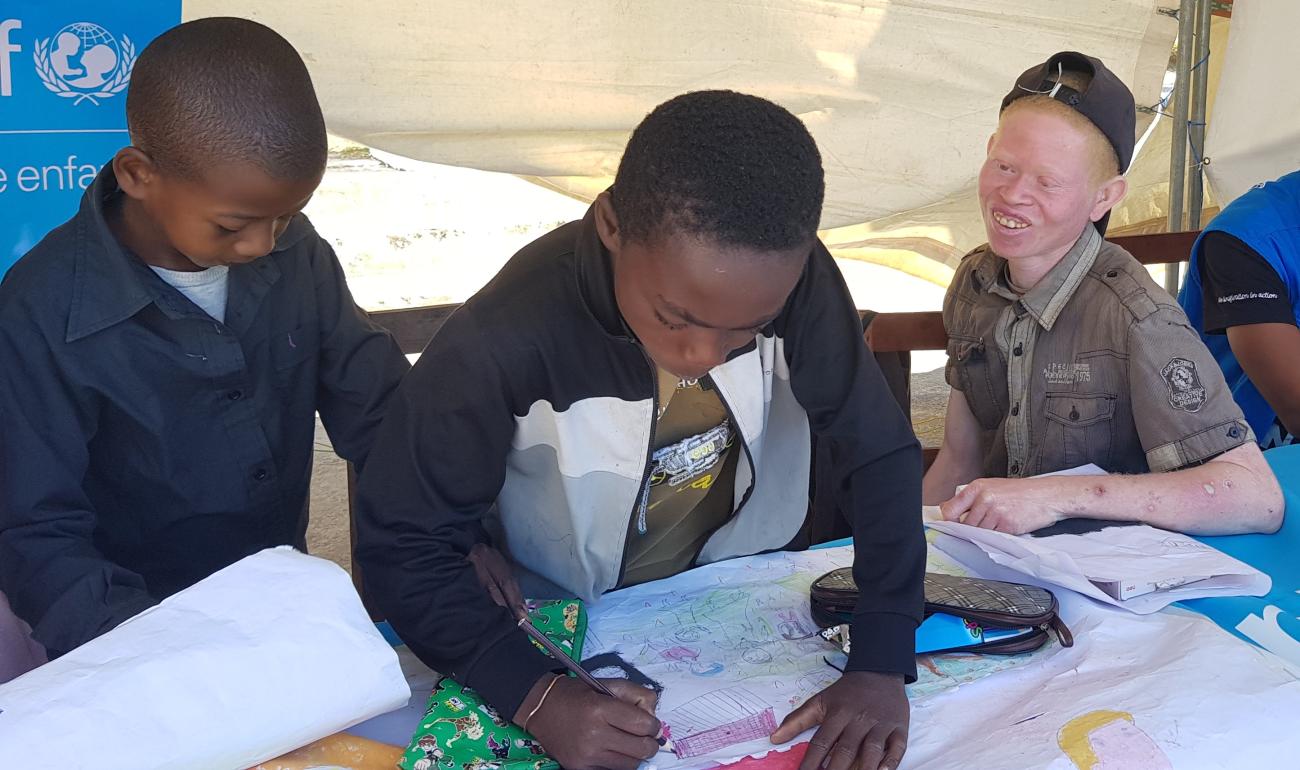Madagascar - Empowering persons with albinism through coordination and a human rights-based approach

Between January and August 2022, over 20 kidnappings of persons with albinism were recorded by the authorities in Madagascar. The people of Madagascar have been shocked by this dramatic increase in attacks and the barbaric nature of injuries inflicted on some of the victims. While attacks against persons with albinism has been a concern for a long time in other African countries, in Madagascar this phenomenon is relatively new. The attacks are mainly in the South of the country and began around six years ago when the severe drought sent so many people in this region into extreme poverty.
Discussions by the Resident Coordinator’s Office in Madagascar, led by the Senior Human Rights Adviser (SHRA) team, with affected communities, civil society and state authorities revealed that the problem goes beyond the kidnappings and physical attacks. “Local and state structures do not take account of the special needs of persons with albinism, so that many are not able to access schools, employment or receive the particular medical care they need” said Sabine Lauber, the SHRA to the UN in Madagascar. “This has resulted in many persons with albinism being excluded and disempowered, thus making them more vulnerable to attacks and kidnappings. Any strategy to address the attacks must include holistic engagement to ensure access to all basic services.”
The Resident Coordinator for Madagascar, Issa Sanogo, presented the situation to the UN Country Team as a matter requiring urgent attention.
“This is a topic on which the UN can make a big difference” said Mr Sanogo.
“By drawing on international experience and the multi-sectoral expertise of each UN agency, fund and programme, we can change the lives of these persons, who have effectively been left behind.”
Based on discussions with experts at the international and regional level, including the UN Independent Expert on the protection of rights of persons with albinism, the Senior Human Rights Adviser established an internal UN multi-agency technical committee. The committee met with key Government ministries to engage together towards a comprehensive, human rights based national action plan to advance the rights of persons with albinism. Led by the Ministry of Justice, a national level technical committee has now been established to lead on this issue, consisting of relevant ministries, the gendarmerie, UN agencies and persons with albinism. The holistic, multi-sectoral approach put forward by the UN system, and led by the Resident Coordinator now has the commitment of key ministers, members of parliament and local governors.
Inspired by the leadership and coordinated approach of the Resident Coordinator, UN agencies have developed their own joint initiatives to advance this work further. UNICEF, for example appointed a consultant to research the current situation of persons with albinism, guided by the technical committee. The SHRA team, UNICEF and UNFPA organized a joint conference with national authorities and civil society in June 2022 to identify key recommendations for the development of the national action plan. Persons living with albinism were active participants in this discussion – ensuring that their lived experiences are informing policy development and engagement by the UN system.
Another key achievement has been the establishment of the first ever Association of Persons with Albinism in Madagascar, an initiative supported by the UN system to ensure consultation with affected persons at all levels of policy development. “Our objective is to unite persons with albinism in Madagascar and to give them access to the same rights as other persons” said Mr Fulgence Soja Ramiandrisoa, the President of the Association.
“We have visions of taking our rightful place at all levels of society and making discrimination a distant memory”.
On top of this, the Government of Madagascar agreed to an official country visit of the Independent Expert on Albinism, which took place from 20-30 September, a sign of trust in the support and expertise of the UN system in supporting national efforts to fully realize the rights of persons with Albinism. The visit will result in a report to the UN Human Rights Council (OHCHR) in March 2023 together with a series of recommendations based on international standards and good practices.
By mobilizing the collective power and resources of the UN system and fostering partnerships with Government, civil society and human right experts, the Resident Coordinator has initiated important progress in the protection of the rights of people with albinism across Madagascar.
To learn more about the UN's work in Madagascar, please visit: https://madagascar.un.org/.













